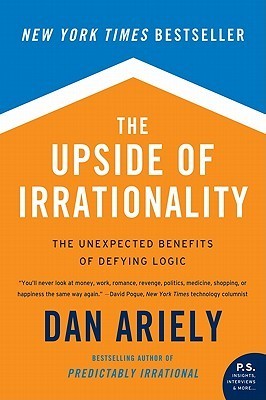
Think Like a Freak
Book Description
Dare to challenge conventional wisdom? "Think Like a Freak" invites you into a world where logic is flipped upside down and problems are solved by embracing the absurd. Levitt and Dubner reveal how to approach life's toughest dilemmas with an economist's fervor, uncovering surprising truths hidden beneath the surface. They decode the psyche of decision-making, exposing the flaws in our thinking that lead to failure. From tackling crime rates to unraveling everyday habits, this book compels you to see beyond the obvious. Are you ready to change the way you think about thinking?
Quick Book Summary
"Think Like a Freak" by Steven D. Levitt and Stephen J. Dubner presents an unconventional approach to problem-solving, urging readers to adopt a mindset that challenges common assumptions. The authors, known for their previous works "Freakonomics" and "SuperFreakonomics," blend economics, psychology, and storytelling to reveal tools for creative, effective decision-making. They argue that originality comes from asking the right questions, embracing the unknown, and not being afraid to admit ignorance. Through lively anecdotes and case studies, the book illustrates how incentives drive behavior, why simple, childlike viewpoints can outsmart complexity, and how quitting can sometimes be the best solution. Ultimately, "Think Like a Freak" empowers readers to question dogma, seek data-driven answers, and approach everyday dilemmas with fresh eyes.
Summary of Key Ideas
Table of Contents
Questioning Conventional Wisdom
Levitt and Dubner begin with the importance of questioning conventional wisdom. They argue that many problems remain unsolved because people cling to traditional beliefs and fail to ask unconventional questions. By encouraging readers to approach dilemmas free from preconceived ideas, the book promotes a mindset open to innovation and radical solutions. Through real-world examples, it illustrates how challenging the status quo can lead to better outcomes, from business negotiations to personal growth.
The Power of Incentives and Motivation
The authors emphasize the power of incentives and how human motivation drives behavior. They explain that understanding what truly motivates people—beyond simplistic assumptions—can help solve complex issues. Case studies range from sports to charities, illustrating how misaligned incentives create unintended consequences. By deconstructing incentive structures, readers are shown how to better predict behavior and design systems for more positive results.
Thinking Like a Child to Unlock Creativity
A central idea is the value of thinking like a child. Levitt and Dubner argue that childlike curiosity, naïveté, and the willingness to ask “obvious” questions pave the way for innovative thinking. This approach allows individuals to strip away complicated biases and see problems for what they are. The authors share stories where simple, direct questions—often dismissed by adults—led to breakthrough solutions.
The Art and Science of Admitting What You Don't Know
Another key theme is embracing ignorance and valuing honest admission of what one does not know. Rather than pretending expertise, the authors advocate for humility and the practice of saying "I don’t know." Doing so opens doors to deeper inquiry, more effective learning, and a greater ability to solve problems without self-imposed limitations. Real-life examples show how experts and novices alike have benefited from candidly acknowledging gaps in their knowledge.
Mastering the Skill of Quitting
Finally, the book highlights the strategic art of quitting. Contrary to the cultural value placed on perseverance, Levitt and Dubner reveal that knowing when to quit is essential for progress. They offer ways to distinguish between productive and futile efforts, drawing on research and storytelling to demonstrate that successful individuals and organizations are those that pivot or abandon efforts when the cost of continuing outweighs the benefits. This reframing of quitting as a skill, not a failure, challenges the reader to re-evaluate persistent, yet unhelpful, habits.
Download This Summary
Get a free PDF of this summary instantly — no email required.





